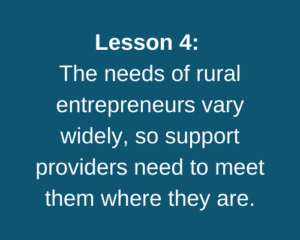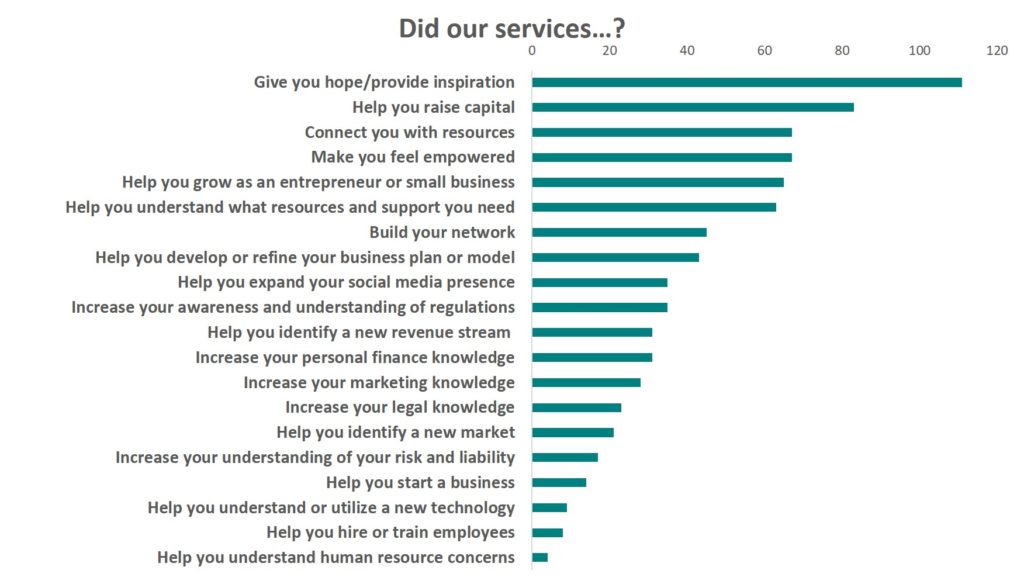Lessons Learned from Ecosystem Building in Oregon: Lesson 4

“Find out what they need. Sometimes they don’t know what they need, so work with them to figure it out. Hopes and dreams, obstacles, etc., to discover the most appropriate resource/support for them.”
– Discussion at Regards to Rural Entrepreneurship session
Small business entrepreneurs vary widely. They do not all enter into business ownership at the same level of skill, experience, or even commitment. A business can be a primary source of income for an entrepreneur that they use to support themselves, or can be more of a side hobby. Some are just starting out, while others have been running a business for decades. Some have access to resources, others do not. “Entrepreneurs in our area are all in different levels of commitment when it comes to their businesses. I think one lesson learned being a new staff member was that it is important to know what they are looking to get out of the experience.” – Jana Weaver, Management Analyst, City of Veneta
It is no surprise then that the challenges and needs of entrepreneurs vary widely as well. Our community partners support many businesses that have not registered with the state, do not have a formalized accounting system, do not know how to operate a social media account or how to use tax software, or do not have a computer and are still operating out of a shoebox. On the other hand, many businesses are quite sophisticated and need just a bit of specialized support.
However, seeking support can be daunting, particularly for beginning entrepreneurs and businesses that need help with the basics. Entrepreneurs often do not know what help they need, or are seeking out the wrong kind of support for their growth stage. “People don’t always need what they think they need: ‘I need a website,’ but really they need a financial plan,” commented Brad Attig, Executive Director of Foundry Collective. In addition, there are often many entry points for a rural business to receive support, so it is unclear which service provider to approach (the SBDC, the City, County Economic Development Councils, Economic Development Districts, etc.).
Business support providers play a vital role in working out the needs of businesses on the entrepreneur’s terms. They need to meet with entrepreneurs where they are at, make the first contact with them as quick, easy, and accessible as possible, and work with them to discover their unique and actual needs. Listening and knowing what questions to ask up front, while not making assumptions about the sophistication of a business can help to identify the best way to support these entrepreneurs. Coordination among service providers will help to reduce confusion among entrepreneurs and channel them quickly to the most appropriate place for support.
The survey responses below show the variety of services accessed by 176 entrepreneurs from the six communities participating in the ROI program funded by the Ewing Marion Kauffman Foundation, and highlight the significant role that these community-based hub organizations play for entrepreneurs, particularly during the pandemic. The survey results reflect the importance of less tangible benefits of providing hope and empowerment to entrepreneurs, as well as the wide variety of services that community organizations have offered over the past 15 months. These organizations helped businesses raise capital, connected businesses with resources, and helped entrepreneurs plan for the future. They were even helping entrepreneurs launch businesses and hire and train employees, though these support services were less in demand likely because of the impact of the pandemic.

